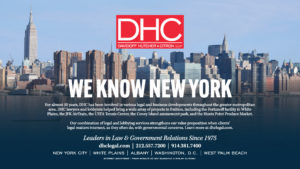The sale of a cannabis derivative known as Delta-8 has been blocked by the state, as Connecticut continues to define what can be legally sold and consumed under its new set of laws.

Originally Senate Bill 1201, An Act Concerning Responsible and Equitable Preservation of Adult Use Cannabis, which was signed into law on June 22 and went into effect on July 1, allowed “cannabis” to include hemp products with a total Tetrahydrocannabinol (THC) concentration that exceeds 0.3% on a dry weight basis. That definition included Delta-7, Delta-8, Delta-9 and Delta-10. Those products could only be sold by a licensed cannabis retailer or medical marijuana dispensary.
But on June 25 the state pivoted on the Delta derivatives, warning businesses that, as of July 1, they could no longer sell products using hemp or hemp-derived goods with any THC concentration, including the various Delta types, unless they are specifically licensed to do so.
License applications for such products are not yet available, and the state Department of Consumer Protection has recommended that individuals or entities selling such products should have disposed of them by July 1.
While Delta-9 is the chemical most people mean while discussing THC and is the one generally conceded to produce the most notable psychoactive effects, the cannabis plant actually contains over 500 chemical compounds, including 100 cannabinoids like CBD and different types of THC.
And it is Delta-8 that is getting the most attention ”” in large part because, while it is a natural compound in hemp, most of the products being promoted as Delta-8 in retail shops are synthetics created from CBD.
Thanks to a loophole in the Agriculture Improvement Act of 2018 ”” also known as the 2018 Farm Bill ”” Delta-8 THC is unregulated at the federal level. That legislation legalized hemp, which is defined as a cannabis plant that contains 0.3 percent Delta-9 THC or less ”” levels considered too low to have a psychoactive effect.
However, the bill does not address Delta-8 THC levels, an omission that makes it legal for vendors to sell the compound, often as edibles, vape cartridges and tinctures, with no oversight.
“This change (on June 25) stops the exploitation of a loophole in the federal hemp act that resulted in individuals selling unregulated products on the retail market with high Delta-8 THC concentrations that have intoxicating effects,” DCP Commissioner Michelle Seagull said.
“Prior to this change,” she continued, “entities were able to sell products in the normal retail market without having to adhere to any testing, packaging, or labeling standards, including childproof packaging standards, or product restrictions prohibiting forms that appeal to children.”
At least 15 other states have also taken action to restrict or ban the sale of Delta-8 in their marketplaces.
“Delta-8 is just a few molecules different than Delta-9,” Griff Conti, owner-operator of Franny”™s Farmacy in Westport, told the Business Journal. “It doesn”™t get you high, but it does have a measurable effect. It”™s sort of the middle of the road between CBD and marijuana ”” it has a calming effect.”
Conti said that Franny”™s ”” a nine-store chain that officially calls itself an “alternative and holistic health service” ”” has dutifully removed gummies and other Delta-8 products, but questioned the timing of the DCS edict.
“Isn”™t it ironic,” he said, “that we just went through this lengthy process to approve a system to sell cannabis at retail and then on the eve of it happening I find out I cannot legally sell what”™s suddenly considered to be an ”˜unregulated”™ product?”
Conti maintained that Delta-8 products can be particularly beneficial to the elderly and others who otherwise have trouble sleeping. When New York banned Delta-8 in late May, he added, Franny”™s saw “a lot of New Yorkers coming up here to get it.”
One upstate New York retailer, Empire CBD, temporarily closed all six of its locations. And although its website still proclaims that “We now sell Delta-8 THC Products in our stores!!” no such products are listed.

Lack of research
Various scientists have been quoted in Delta-8 news coverage warning that sufficient research, including drug trials, has yet to be completed on the compound. Perhaps surprisingly, the U.S. Cannabis Council, which represents state-licensed cannabis companies and legalization advocates, shared that view in a June 2 report.
“There is no evidence that Delta-8 THC is an inherently dangerous or problematic substance,” the report said, adding that, “distribution and sales of Delta-8 THC should be carefully regulated and controlled so that consumers can be confident the products”™ contents are known and safe as well as predictable in their effects. The unregulated distribution of Delta-8 THC products is inconsistent with these principles and poses significant risks to adults and minors.
“Moreover,” it added, “the continued proliferation of unregulated and unsafe Delta-8 THC products has the potential for confusing patients and consumers leading to a loss of confidence in the nascent cannabis industry.”
“It”™s going to put a strain on the cannabis industry,” Conti said. “It does a disservice to all the progress we”™ve made by muddying the waters.”
Delta-8 is a hot enough issue that other area companies preferred not to talk about it.
“Honestly, we don”™t really have a full opinion on this,” Benjamin Zachs, COO of Fine Fettle, whose locations include Stamford, said. “We support the local licensed hemp producers and are happy to be able to now sell those products through our dispensary and not a separate register. We want the opportunity to source and support the Connecticut hemp growers/producers as much as possible.”
Curaleaf, the world”™s largest cannabis company by sales and which also operates a store in Stamford, did not respond to requests for comment. However, Executive Chairman Boris Jordan has reportedly compared the issue with the vaping controversy of a few years ago, when unlicensed products had deleterious effects on consumers.
“The states have got to get their hands around this,” he said, according to a Bloomberg report.

















